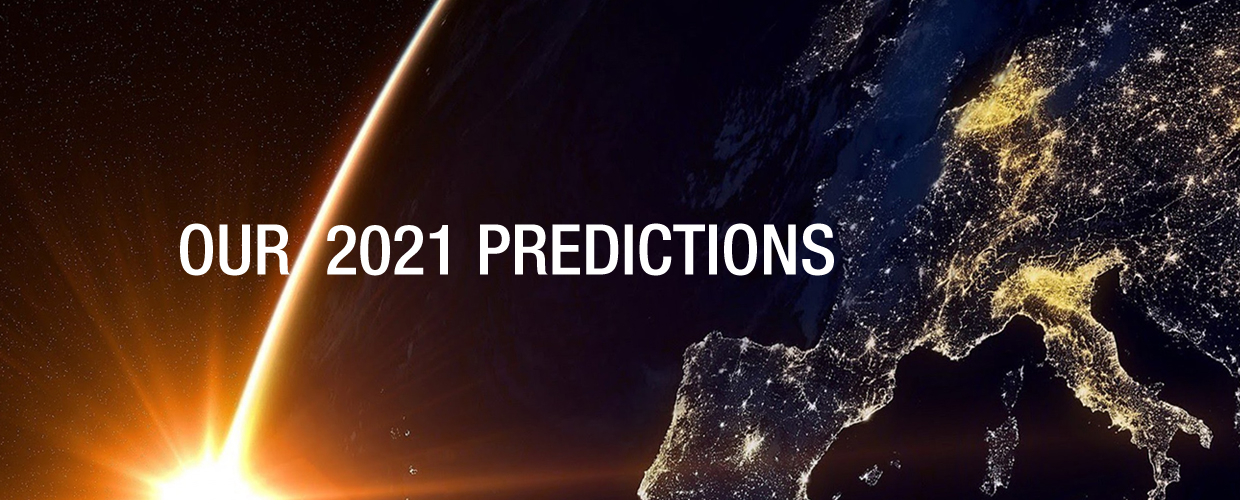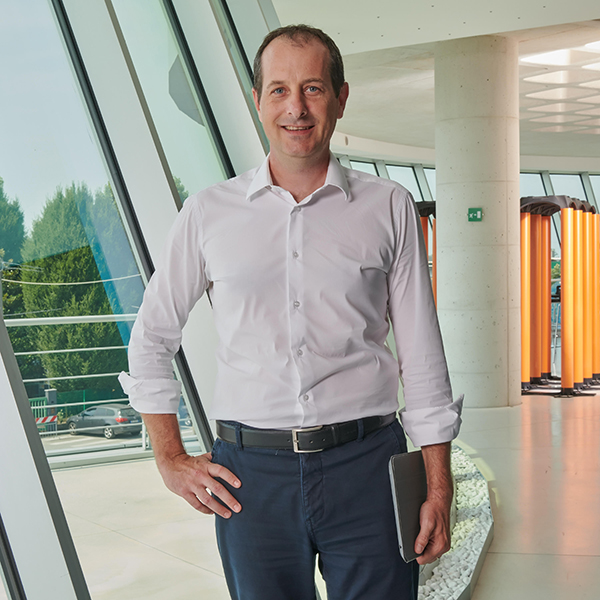Our 2021 predictions
23 December 2020

Public investments will grow – Mirco Pegoraro, CEO
Pandemic will continue in 2021 and its effects on society will continue to be felt in the following years. The pandemic is a public and social responsibility. I expect 2021 to be characterized by strong government intervention to support demand. We should expect important investments especially in the public interest: infrastructure, interventions for hydrogeologic balance, digital infrastructure, civil and commercial transport, green areas, and urban greenery.
Macro vs. Individual markets – Luca Zausa, CSO Global
There will be different growth trends related to the macro areas such as Europe, North America, Far East, etc. For example, the forecast report from the 90th EUROCONSTRUCT Conference shows a 4% growth in 2021 in Europe, which is still not enough to recover from the decline in 2020. Predictions show that from 2023 the situation will stabilize in most of the countries and the market will close the gap created during this year. With regard to individual market segments, it should be noted that the civil engineering sector has proven to be the least affected by the COVID-19 turbulence. Public projects will most likely receive a boost, in order to help the sector in the European market. Good opportunities are available for companies able to follow new requirements for environmental impact, reduction of lead times, and management of events caused by climate change.
Gulf Cooperation Council will be hit hard – Riccardo Cavallini, EAM South East Europe & Middle East
2021 will be characterized by economic volatility due to COVID-19. However, the construction industry is expected to be buoyed by a range of government stimulus packages. Emerging Markets will recover later than Developed Countries. In this framework, GCCs are facing particularly hard times due to lack of cash in the system and lack of labor at working sites. It is unclear how quickly the GCC market will recover in 2021 and beyond since much will depend on the oil price (different break-even values). Technology, Environment, Infrastructure, and Healthcare will be driving investments. Defining these as the new cardinal points will surely help to direct further commercial actions.
European market will rebound in 2021 – Roberto Cecchinato, Sales Area Manager, Western and Central Europe, Northern & West Africa
Europe will have a slow beginning due to COVID-19 measures still limiting productivity, with a strong rebound starting in the second quarter and accelerating in the second half of 2021. In the first phase, the main limitation will be a deficit in logistic capacity, as well as reduced manpower availability due to increased sick-leave and/or travel restrictions. Outdoor jobs with low manpower intensity/concentration will be less impacted. This is an opportunity specifically for our landscaping products (especially through online vendors) and for smaller projects using formwork. In the second part of the year, the benefits of public funds entering the market will increase the level of investment in infrastructure, and better confidence in the future due to vaccination will unblock private investment. Underlying themes will be Environment, Circular economy, CO2 reduction, Health & Safety.
Asia Pacific Region & Africa construction will suffer – Alessandro Gagliardi, EAM APAC, East & Sub-Saharan Africa
APAC markets are expected to maintain high growth rates, thanks mainly to the so far successful handling of the pandemic by the largest economies in the area: China, Vietnam, Singapore, South Korea. Indonesia and the Philippines are more affected by the COVID-19 and will be slower in bouncing back. The construction sector will still suffer from a scarcity of labor force due to travel restrictions as well as cash-flow limitations. However, Governments across Asia are planning substantial stimulus to offset the pandemic effects. Sub-Saharan African markets will possibly suffer a lack of available external financial support and thus their economic activity and investment growth will be more deeply impacted by the global slowdown. Innovation, Health and Security, and Environment will be the key focuses.
Multiple crisis can be overcome by open innovation – Nikola Tosic, CMO
At the end of 2020, we are still in the chaotic phase of the global pandemic crisis. This is a health, social, and financial crisis of unprecedented scale. Once the majority of the population is vaccinated, society and businesses will start to return to normal. However, this normal will be very different, and no one knows in what way. Businesses will need to quickly understand what is the new normal, what are the new rules, what are the new needs, and how will they develop after the crisis. In parallel, global society will accelerate solving another crisis – the sustainability one – moving projects and businesses from the short term to the long term performance. The general feeling for companies will be that they are riding a huge wave in a storm, without any control. And finally, companies will need to catch up with drastically accelerated digitalization. To adapt, companies will need to innovate like never before. The rate of innovation will need to be accelerated including all aspects of a company, not only R&D and product design teams. Companies and managers who adopt open innovation and cooperate more with customers, distributors, partners, and experts, will adapt faster. The construction industry, which can appear as less dynamic, will also be drastically changed due to work from home trends, digitalization, and sustainability challenges.
